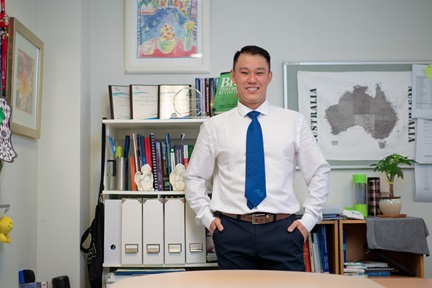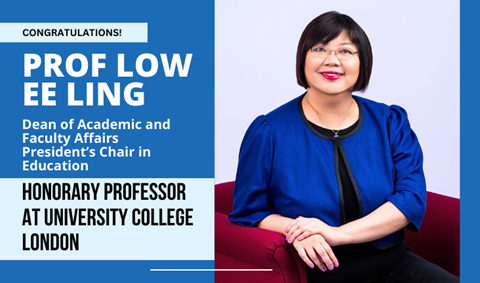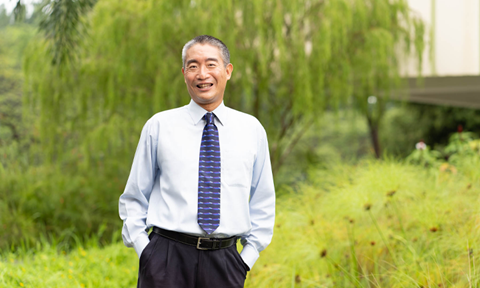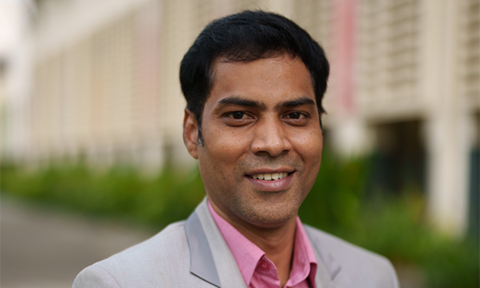Why literature matters in Southeast Asia—and why it starts with you
MANILA, Philippines — As the Philippines continues to promote global competitiveness and lifelong learning through the Matatag Curriculum and CHED’s internationalization agenda, assistant professor Dr. Ann Ang from the National Institute of Education, Nanyang Technological University (NIE NTU), Singapore, shares why now is the right time for Filipino educators to shape Southeast Asia’s literary discourse. Her research focuses on the region’s literary landscapes and our shared cultural narratives.
Q: What influenced your shift from studying British and American classics to focusing on Southeast Asian writing?
Like many students with a fondness for literature in English, I received an undergraduate education focused on British and American classics. If I had gone straight into a PhD, I might have ended up specializing in American modernism or in British Romanticism, with an ecological focus.
However, I ended up teaching English in various government secondary schools in Singapore. Unbeknown to myself, that decade I spent teaching literature learners of all abilities and from a wide variety of cultural and socio-economic backgrounds led to a nascent postcolonial bent within myself, in seeking to advocate for literatures from locations outside the Anglo-American canon.
Literary research is not divorced from the world of creative writing and publishing, and writers are often the dreamers and visionaries who pre-empt the intellectual developments that come later—some writers are obviously scholars as well!
Writing and researching in response to one’s location, one’s particular histories, and building knowledge about who we are and where we are, is important to me.
My research now focuses on the anglophone literatures of Southeast Asia, with a comparative focus across countries and cultures. Primarily, I research Malaysia, the Philippines and Singapore. I’ve always admired the rich literary and intellectual traditions of the Philippines, and how their universities have celebrated their writers, thinkers and activists for close to a century. Our Philippine colleagues also teach Singapore literature on their university courses.
"Much of my work looks at Southeast Asian texts and broader theoretical approaches—like postcolonialism or world literature—side-by-side, to see how one could speak to the other. Concepts like 'modernity' or 'globalization' need to be understood contextually when applied to our region. It's also fascinating to uncover the deep historical and intellectual ties across Southeast Asia, whether through publishing networks or shared experiences like the Cold War."
Q: How can understanding Southeast Asian anglophone literature help Filipino educators and readers see their own narratives—and regional connections—in a new light?
When I began my PhD at Oxford, I was more of a world literary scholar, that is, someone interested in themes of globalization, and the mechanisms of literary publishing and circulation, and their further implications for literary reading.
Yet, the more I worked on the literary texts, the more I realized that I was interested in why Southeast Asian anglophone writing was not being read on its own terms: literary theories are not universal, and were conceptualized in reference to specific periods, moments and developments.
While there has been a lot of scholarship on separate country traditions, e.g. Malaysian anglophone writing, less has been done to articulate what Southeast Asian writing may be saying that is different, or adds to mainstream academia’s understanding of literary concepts.
My research tries to fill that gap. I’ve explored how Nick Joaquin’s “tropical gothic” stories express an ecological vision. I’ve studied how publishers like Heinemann Asia and Skoob Pacifica helped shape early regional identities. I’ve also recovered voices like Ho Poh Fun and Wong May, Singaporean women poets who reimagined ecological modernism. Another project compares how water and modernization are treated in novels from Singapore and Brunei.
Q: In a field where Southeast Asian literatures are often underrepresented, what keeps you motivated in your research?
This work is important because so little has been done to understand literatures across Southeast Asia in a contemporary and comparative mode. It’s disheartening when we don’t read or hear about our fellow Southeast Asian neighbors.
Books, media and cultural developments are usually routed through a third location, such as London or Seoul, instead of crossing the immediate borders here.
What has been most gratifying throughout my journey is not the research publications, but knowing that other thinkers and scholars are also seeking to answer the same questions I have. We may not arrive at the same answers, but we are concerned, curious and very much invested as an intellectual community.
Q: Many Filipino educators are passionate about teaching and research in the service of larger causes. What advice would you give to someone in the Philippines who is thinking about doing a PhD but isn't sure where to begin?
To someone considering a PhD, I would urge them to consider why doing one is important to them: at the heart of every PhD project is a fundamental question, or set of questions, that will define decades’ worth of scholarly research and inquiry for the person seeking to answer them.
A PhD is hard work, and academia is a lifetime’s worth of grueling labour. It’s not a lifestyle; and it takes a certain disposition that possesses dedication, intellectual daring, as well as a sense of fun and play.
NIE is a great place to pursue a PhD in literature or literature teaching because of our English Language and Literature department’s strengths in Singapore and Southeast Asian literature, alongside other fields of literary and educational inquiry
To someone who is undecided about doing a PhD in NIE, I would urge them to reach out for a conversation with any of our faculty who may be a potential supervisor. As an educator myself, I would want to understand first what the potential student may be concerned about.
Take the next step
If you share Dr. Ann Ang’s interest in English Literature in a regional and comparative context, the NIE offers you a unique opportunity to explore literature in ways that are deeply rooted in Southeast Asian experiences while engaging with global conversations.
For more information about Dr. Ann Ang and research by the English Language and Literature Department at NIE, please visit https://www.ntu.edu.sg/nie/about-us/academic-departments/english-language-and-literature
Ranked among the top 15 universities in the world, NIE is currently accepting applications for graduate programs by research until July 24, 2025. Apply today at https://ntu.sg/nieGradProgIntake.
Source: PhilStar Global. All rights reserved.



.tmb-listing.jpg?Culture=en&sfvrsn=60db54e_1)


.tmb-listing.jpg?Culture=en&sfvrsn=89bab729_1)